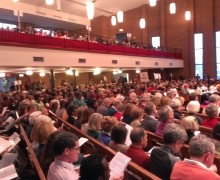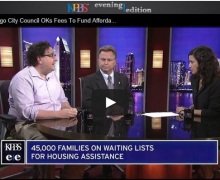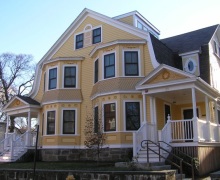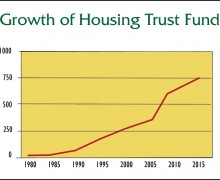Chicago Low-Income Housing Trust Fund Celebrates 25th Anniversary
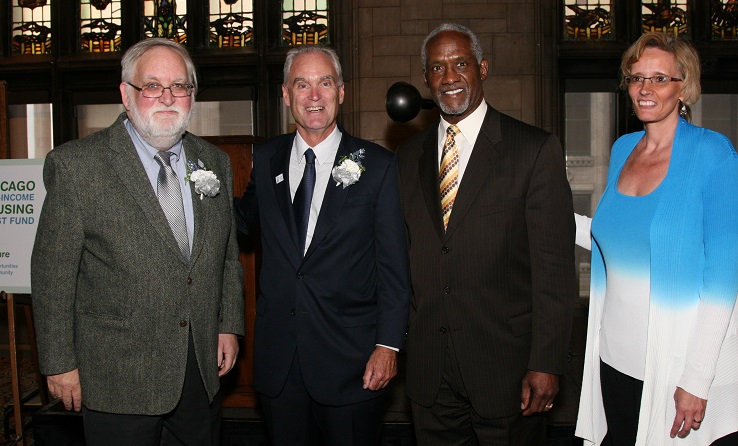
The Chicago Low-Income Housing Trust Fund (Trust Fund) created in 1989, celebrated 25 years of success in September 2014. The Chicago Low-Income Housing Trust Fund is the largest municipally funded rental assistance program in the nation and is one of the few housing trust funds devoted completely to serving households earning no more than 30% of the area median income.
The Chicago Trust Fund commits resources to bridge the gap between market rents and affordable rents. The Trust Fund’s rental assistance gives stability and predictability to landlords and helps low-income households afford safe, decent rental housing, which results in higher occupancy levels and reduced tenant turnovers for landlords. Tenants including people working at low-paying jobs, people with disabilities, the elderly, as well as individuals and families experiencing homelessness, are able to work toward self-sufficiency within their communities once they have a secure place to call home.

Trisha understands the value of a home. A six year survivor of cancer, Trisha often found that her social security check was not enough to cover rent and other essentials, including the cost of medicine. Now in a secure affordable apartment available through the Trust Fund, when she’s not giving back to the community by volunteering at various community and arts organizations, her home is a blessed opportunity for her to live in her beloved Uptown neighborhood.
The Trust Fund is managed by a mayoral-appointed Board of Directors comprised of fifteen Chicago residents that represent government, non-profit organizations, and private businesses. Administrative services are provided by the Chicago Department of Planning and Development. The Trust Fund utilizes more than half of its resources for households earning less than 15% of the area median income and the balance of its resources for those earning no more than 30% of the area median income. The Trust Fund supports two key programs:
- The Rental Subsidy Program (RSP) has grown from its first allocation of $299,000 to assist 119 households in 1989 to today’s annual appropriation of $15 million to assist nearly 3,000 households in 600 properties across the City of Chicago. A projected 5,400 individuals benefit from these resources annually. The subsidy agreement stays with the approved building to provide ongoing affordable housing and is not portable and does not move with any one tenant.
- The Multi-year Affordability through Upfront Investment (MAUI) provides long-term replacement financing to support the development of affordable rental housing. The interest-free forgivable loan replaces up to 50 percent of a developer’s private first mortgage loan or can used to fund an operating reserve for rent reduction. The resulting savings reduce the rents for a minimum of 15 years for very low-income tenants earning no more than 30 percent of the area median income.
Funds are also committed to special initiatives which link rental assistance to supportive services. Each initiative has numerous local partners engaged. Current special initiatives include:
- Homeless Dedicated Prevention assists families transition from an expiring federally funded, short-term rental assistance program;
- Homeward Bound houses unsheltered homeless single adults in stable permanent housing and connects to supportive services that focus on housing retention, developing a source of income, and engages participants in substance abuse treatment and mental health services, if applicable.
- HIV/AIDS Initiative provides permanent housing opportunities to 100 households; and the
- Women’s Self-Sufficiency Initiative works to assist female-headed households increase their skills in order to improve their economic situation. The Trust Fund assists through the provision of rental subsidies.
Throughout its history, the Chicago Low Income Housing Trust Fund has received numerous sources of revenue. In addition to the City of Chicago designating a portion of its corporate funds to the Trust Fund, the Trust Fund is the administrator for funds developed through Chicago’s Affordable Housing Opportunity Fund. An important development took place for the Trust Fund in 2005, when the State of Illinois passed legislation to create the Rental Housing Support Program (RHSP) based on the model of the Chicago Low-Income Housing Trust Fund. The Trust Fund and the City of Chicago worked with community housing advocates to pass legislation dedicating document recording fees to the state Rental Housing Support Trust Fund. Approximately 43 percent of the funds developed are earmarked for the City of Chicago, based on population, and is delegated to the City’s Trust Fund as the local administering agent.
The 25th Anniversary celebration honored Chicago leaders who have been integral to the Trust Fund’s success, including Tom McNulty who has served as president of the Trust Fund Board for the past 25 years and his firm Neal Gerber & Eisenberg LLP that provides pro bono legal services to the Trust Fund. Peter Holsten and Jackie Taylor Holsten of the Holsten Real Estate Development Corporation were recognized for their significant contributions to the creation of affordable housing as recipients of the 2014 Douglas C. Dobmeyer Partnership Award.
The Chicago Low Income Housing Trust Fund has created a video about its success and is available on their website: http://www.chicagotrustfund.org/
Contact: Cary Steinbuck, Chicago Low-Income Housing Trust Fund, Chicago Department of Planning & Development, 121 N. La Salle, Room 1006, Chicago, IL 60602 (312-744-0675) or Cary.Steinbuck@cityofchicago.org





